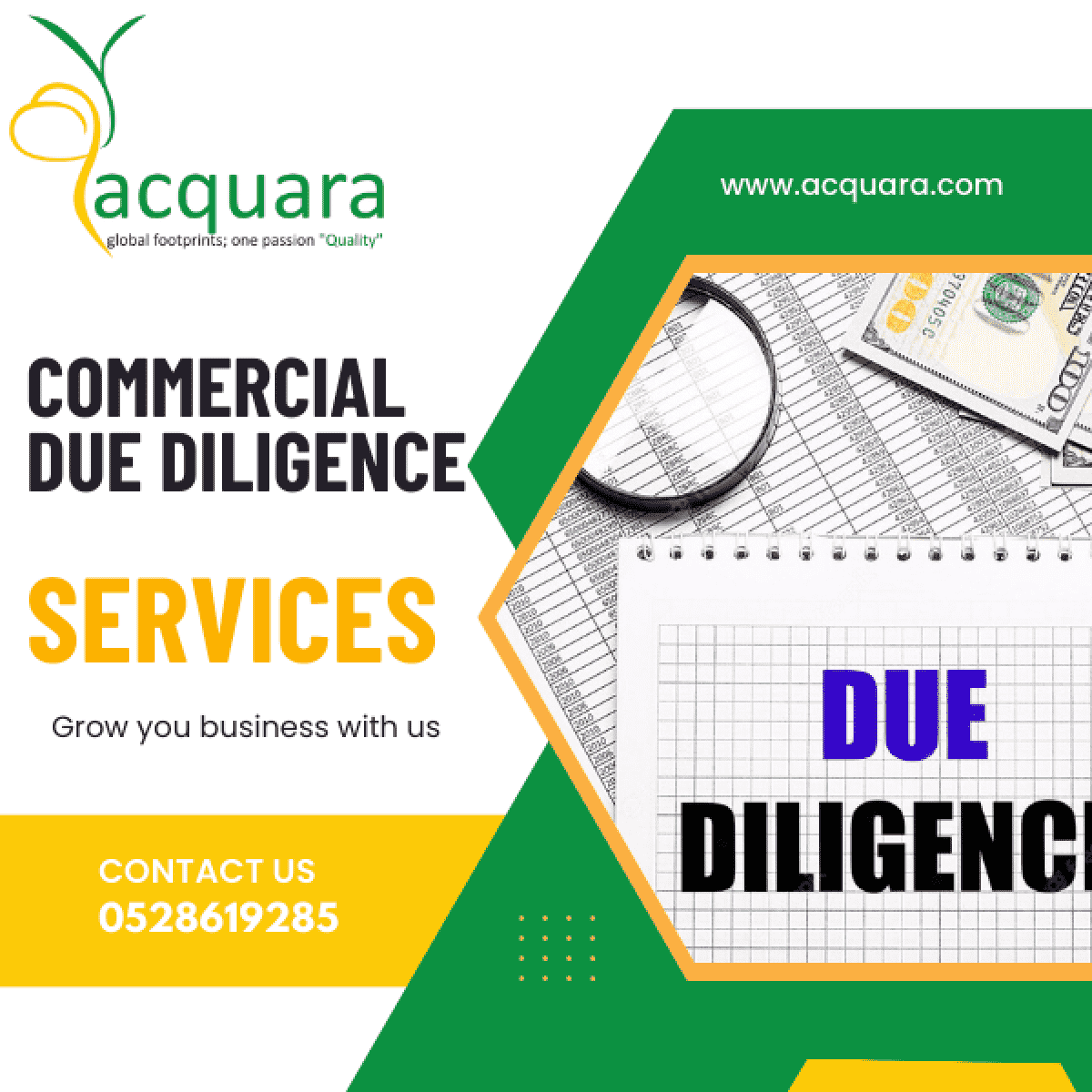A Complete Overview Of Commercial Due Diligence Services
- - Category: Accounting
- - 05 Apr, 2023
- - Views: 205
- Save

Commercial due diligence services refer to the process of assessing the financial, operational, and strategic aspects of
Commercial due diligence services refer to the process of assessing the financial, operational, and strategic aspects of a company before a merger, acquisition, or investment.
These services are typically provided by consulting firms or investment banks and can include:
- Financial analysis: This involves a detailed review of the target company's financial statements, projections, and other financial metrics to identify any potential risks or opportunities.
- Market analysis: This involves analyzing the target company's position within its industry, competitive landscape, and market trends to determine its potential for growth and profitability.
- Operational analysis: This involves assessing the target company's operational efficiency, supply chain, and other key operational aspects to identify any areas of weakness or potential improvements.
- Customer analysis: This involves analyzing the target company's customer base, including customer acquisition and retention strategies, to determine the potential for future growth.
- Management team assessment: This involves evaluating the target company's management team to determine their capabilities, track record, and potential for success in achieving future goals.
Commercial due diligence services are critical in helping investors and acquirers make informed decisions and mitigate risks when considering a potential investment or acquisition.
Commercial Due Diligence (CDD)
A Commercial Due Diligence (CDD) Report is a detailed analysis of a company's operations, finances, market position, and growth prospects, typically conducted as part of the due diligence process for a potential investment or acquisition. The report is usually prepared by a consulting firm or investment bank and is designed to provide potential investors or acquirers with a comprehensive understanding of the target company's business and its potential risks and opportunities.
The CDD report typically includes an analysis of the target company's financial statements, competitive landscape, customer base, management team, industry trends, and regulatory environment. It may also examine the target company's historical performance and projections for future growth, as well as any potential risks or challenges that may impact its operations.
The purpose of the CDD report is to help investors or acquirers make informed decisions about whether to move forward with the transaction and how to structure it. The report can also be used to identify areas where the target company may need to improve its operations or management to maximize its value.
Aspects of Commercial diligence
Commercial diligence is a process of assessing the commercial viability and potential of a business or investment opportunity. It involves a thorough examination of various aspects of the business, including market trends, competition, financial performance, management capabilities, legal and regulatory compliance, and other factors that can impact the business's success.
Here are some aspects of commercial diligence that are typically considered:
- Market analysis: This involves assessing the size and growth potential of the market the business operates in, as well as analyzing consumer trends, preferences, and behavior.
- Competitive landscape: This involves evaluating the competitive landscape, including the strengths and weaknesses of existing competitors, and potential threats from new entrants.
- Financial analysis: This involves reviewing the financial performance of the business, including its revenue, profitability, and cash flow, as well as its financial projections.
- Management assessment: This involves evaluating the quality and experience of the management team, including their track record, strategic vision, and ability to execute on business objectives.
- Legal and regulatory compliance: This involves assessing the business's compliance with relevant laws and regulations, as well as any potential legal or regulatory risks.
- Intellectual property: This involves evaluating the business's intellectual property assets, including patents, trademarks, copyrights, and trade secrets, and assessing their value and potential for future growth.
- Operational efficiency: This involves evaluating the business's operational processes and procedures, including supply chain management, inventory management, and other factors that can impact efficiency and profitability.
Overall, commercial diligence is a critical step in assessing the viability and potential of a business or investment opportunity and requires a thorough examination of various aspects of the business.
Conclusion–
Corporate finance consulting firms often provide due diligence services as part of their finance consultancy services. Due diligence is a comprehensive assessment of a company or business opportunity to evaluate its financial, legal, operational, and strategic risks and opportunities. This assessment is usually conducted before a merger, acquisition, or investment.
Acquara Management Consultant delivers the best commercial due diligence services and uses its expertise in financial analysis, accounting, and business valuation to perform due diligence.
